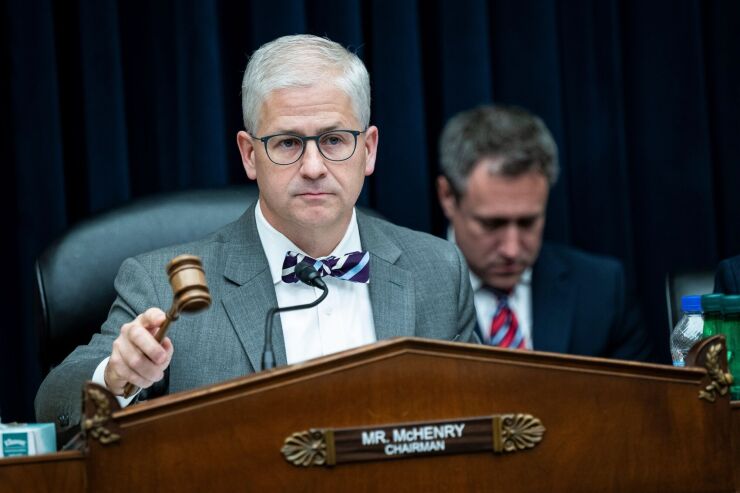
WASHINGTON — The House failed to overturn President Joe Biden's veto of a measure that would have nullified the Securities and Exchange Commission's guidance
SEC accounting bulletin 121 requires that companies, including banks, hold crypto assets for their clients on their balance sheets as a liability. For the largest banks, it means that it's not efficient to open or to scale a crypto custodying business.
Both the House and the Senate — with some bipartisan support — passed a
On Thursday, the House wasn't able to overturn that veto. The House, which needed a two-thirds majority, voted 228-184.
Twenty-one Democratic lawmakers voted in favor of overturning the veto, breaking with Biden. It's the same number that voted in favor of originally overturning the guidance.
"A bipartisan CRA that passes both chambers?" queried Rep. Patrick McHenry, R-N.C., chairman of the House Financial Services Committee on the House floor on Wednesday. "That is a mandate from the Americans we represent. Despite all of the recent progress and bipartisan agreement, President Biden vetoed the first digital-asset-specific legislation to ever pass the House and Senate."
The measure continued to face opposition from most Democratic lawmakers. Rep. Maxine Waters, D-Calif., ranking member of the House Financial Services Committee, argued on the House floor that the CRA approach is overly broad because it would prevent the SEC from making another rule on the same topic in the future.
"One special interest group representing large custody banks has provided the SEC with targeted modifications to SAB 121, which would avoid the sledgehammer effect of this legislation," Waters said. "I understand that the SEC may be close to reaching an agreement on these modifications, which would ensure that well-regulated entities, like custody banks, can offer crypto custody services consistent with SAB 121."
Bank industry trade groups, in a new letter to the House on Wednesday, urged lawmakers to vote in favor of overturning Biden's veto.
"SAB 121 represents a significant departure from longstanding accounting treatment for custodial assets and threatens the industry's ability to provide its customers with safe and sound custody of digital assets," said the American Bankers Association, Bank Policy Institute, Financial Services Forum and the Securities Industry and Financial Markets Association, in the letter. "Other, non-bank digital asset platforms subject to SAB 121 are not required to meet the same capital, liquidity, or other prudential standards as banks and therefore do not face the economically prohibitive implications of SAB 121."





